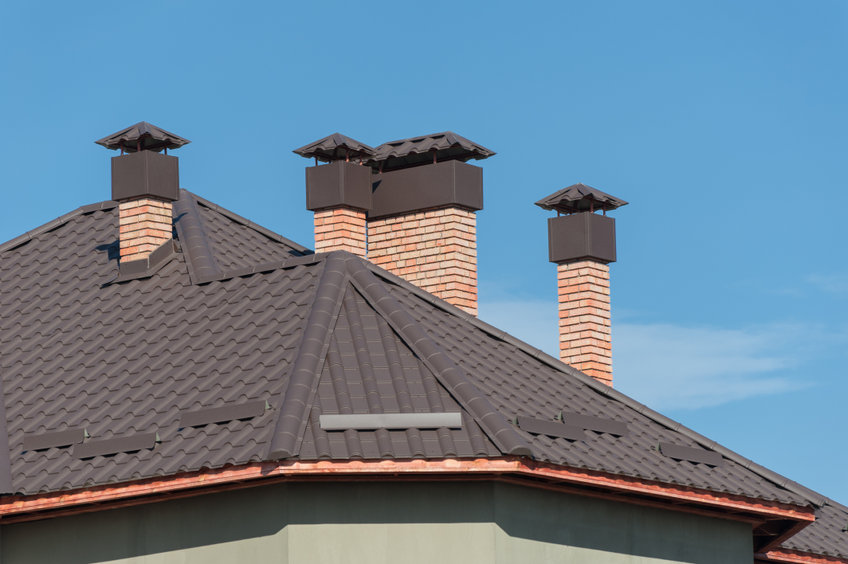What Could Be Covered?
- Chimney Fires

Contrary to popular belief, most insurance companies label chimney fires as unexpected or sudden events. This means that if your fireplace caused an unexpected chimney fire then your homeowners’ insurance will probably take care of the damage. However, if the fire was a result of poor maintenance or negligence, then your insurer will not cover the repairs.
- Leaks
Leaks are another common issue that homeowners have to deal with and if it is not taken care of early, they can force you to remodel your home on a grand scale. A homeowner’s insurance policy can cover a chimney water leak if some outside force like a bad storm caused it. However, it is important to discuss your covered losses with your insurance company.
- Lightning Strikes
Lightning strikes can be covered by a standard homeowner’s insurance policy if they caused the structure to lean over or lose bricks. It can also pay for the chimney damage and repairs if it were to collapse after a lightning strike. The only challenge would be to verify that the major problem was caused by lightning and not a structural problem or instability.
What May Not Be Covered?
- Chimney Due For Improvements
If a tree fell on your chimney, causing it to lean and suddenly collapse then a homeowner’s insurance can help handle the cost of repairs. This is because all damage was caused by a covered peril such as a fallen tree. However, if your chimney was already leaning to one side before the tree fell, then the damage may not be covered because the chimney was due for improvements.
- Poor Maintenance
Homeowner’s insurance policies never cover maintenance issues of any kind. For instance, chimney damage that occurs over time due to improper care and negligence would not be covered. Other issues such as fallen bricks and other related repairs would also be rejected by your insurer should you file a claim.
What You Should Know Before Filing an Insurance Claim
Homeowner’s insurance varies from one policy to another and a few of the above-mentioned categories of chimney damage may or may not be covered. If you think your case for chimney repairs is good enough to be covered, it is important to gather detailed and well-organized documentation as proof. This may include but is not limited to photos, all receipts for past repairs, and precise estimates of any repair or maintenance work needed. Whatever you do when collecting this information, never lie about your claim or give false estimates as it is considered an insurance fraud that could land you in court. If you are lucky enough not to end up in court, your name will always be flagged as a person to watch out for by insurance companies.
What If Your Claim Is Denied?
You could still provide a valid claim and end up being denied cover. The first line of defense before signing up with any insurance company is to understand what damages it will cover. When gathering your information, you should be focusing on the clauses and anything tangible mentioned in the insurance clauses. It comes without saying that insurance policies are never fun to read but it is not very difficult to find the information you are looking for. Most of the information can be found in the subheadings, or points and exceptions that have been written separately. Keep in mind that insurance companies have some elasticity in situations where they are not constrained by their policy terms and would always be willing to pay a legitimate claim. There is no good reason for a legitimate claim to be denied as long as the law is on your side.
Most insurance companies do not want a bad name with the public and will do everything in their power to pay a claim if it has been thoroughly vetted and proven eligible. What happens is that a homeowner’s insurance will cover chimney repairs caused by unexpected events mentioned in their clauses, and may reject or not cover damages caused by negligence and poor maintenance.
